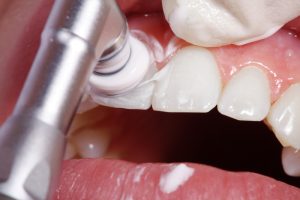Oral Health Goals for 2019
December 17, 2018Reasons to Keep Your Tongue Clean
January 2, 2019With many people making resolutions for the new year, oral health will not be something that makes the top of all the lists. However, oral health is an area that the U.S. as a whole could improve on. 92% of Americans have tooth decay by the time they reach adulthood. Only 65% of people visit the dentist each year. Some basic oral hygiene changes, dental exams and dental cleaning appointments can help change that.
Dental Visits
If you haven’t seen a dentist yet this year for an exam or dental cleaning, you’re not alone. At least 35% of Americans don’t go to the dentist each year. You’re actually supposed to visit the dentist twice a year, as recommended by the American Dental Association. Those who don’t see a dentist, are putting themselves at risk for oral health diseases that cause permanent tooth loss.
Many people don’t see the need to visit the dentist unless they can visibly see changes in their teeth or if they experience tooth pain or emergencies. Seeing a dentist is not like going to the emergency room. It’s not something that should only be done when you have a major issue. Dental visits should happen every 6 months. If you already have oral health issues, you may even want to see a dentist every 3-4 months. These visits are so important that many insurance plans will cover the costs.

Concern for Your Oral Health
Oral health diseases may not be a huge concern for you if your teeth look great. However, they could easily affect you, even without you knowing. The National Institutes of Health report that oral health diseases are among the most common of diseases. In fact, in the United States alone—which is doing better than many other countries—tooth decay is the most “chronic, prevalent disease”. That’s with both children and adults. Tooth decay is also known as cavities, and yes, they are considered a disease. That is because when your teeth decay, you can no longer get back that natural part of your tooth. Plus, once you have decay, it spreads just like any other type of disease.
Many studies show that American adults just aren’t that concerned about their oral health. Only about 64% of adults see a dentist each year, according to the Centers for Disease Control and Prevention. Not even all of those see the dentist twice. After age 65, only about 62% visit the dentist and the percentages only go down from there.It’s no surprise then that at least 31% of adults have untreated cavities. That number just about reflects the 35% that don’t get their exams, dental checkups and dental cleanings like they should.
91% of Americans will have tooth decay by the time they are adults, and oftentimes, they’ve had multiple cavities. 47% of Americans have gum disease, which leads to mushy gums and tooth loss. 120 million are missing at least one tooth and studies show more than 36 million Americans have no teeth left. Oral cancer affects about 50,000 people each year. All of these issues could be prevented with good oral care and those biannual visits to the dentist.
Comprehensive Dental Exams
Sugars in your food and drink mix with mouth bacteria and form an acidic substance called plaque. That plaque sticks to your teeth, breaks up the minerals in those teeth and decays them. That’s how cavities form and how your gums will recede until the point of tooth loss. Comprehensive dental exams check for signs of decay, gum disease, oral cancer, mouth sores and any other issue that could damage your health.
Poor oral health is linked to diabetes, systemic disorders, high blood pressure, oral cancer, gum and bone disease, sinus problems and too many other issues to name. That is why you need frequent exams. During your appointment, we will take x-rays of your teeth to examine your bite, alignment, jaw structure and your teeth. We’ll examine all previous dental work, especially implants and restorations. Your bite and jaw should line up a certain way, and we can check for that and signs of clenching, grinding, chips and cracks. Checking for oral cancer takes just a second, but could save your life. This exam will evaluate all your mouth tissues and internal structure for anything abnormal.
Dental Cleanings
A dental cleaning is always accompanied by a comprehensive exam. We take about 30 minutes (not just 2 like you do at home) to brush, floss, buff, and polish your teeth. We scrape off plaque and stuck-on tartar (hardened plaque) meticulously and clean those areas that are hard for you to reach. Flossing is done several times between all the teeth to detect gingivitis or gum issues and areas where your teeth could decay. We use special dental tools to provide the polishing your teeth get to make them shine.
Our dental cleanings will find areas where oral hygiene needs to be done more and we will finish the cleaning with a fluoride treatment to strengthen the teeth. Your dental cleaning and comprehensive exams are non-invasive procedures and they are quick, but are things you simply can’t do on your own.
Dental Visits: Are They Important?
If you want to avoid oral health diseases, you must visit the dentist. There is simply no other way to get around it. Those comprehensive exams and dental cleaning appointments are short, but they can do so much for your health. We can detect disease, make appointments to correct your oral health problems and can help you with your oral hygiene to prevent further damage to your smile. You get 8,760 hours every year to work with. Make 2 of those hours a time for your dental cleaning and exam by calling Family & Cosmetic Dentistry of the Rockies at (970) 267-0993!






